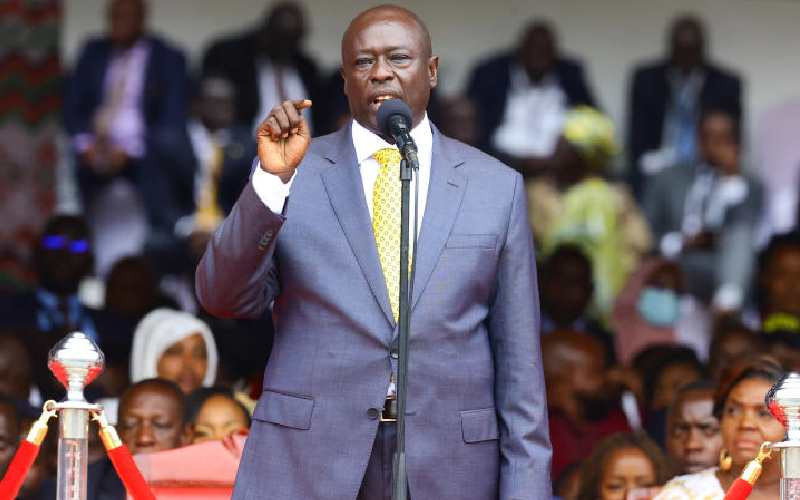×
The Standard e-Paper
Join Thousands Daily

Deputy President Rigathi Gachagua speaks after being sworn at Kasarani on September 13, 2022. [Kelly Ayodi, Standard]
September 13, 2022 was more than a big day for William Samoei Ruto at Kasarani. It was a big day for a movement; the wheelbarrow movement that espoused class freedom from what appeared like class oppression, a fulfilment of a dream that initially appeared impossible.